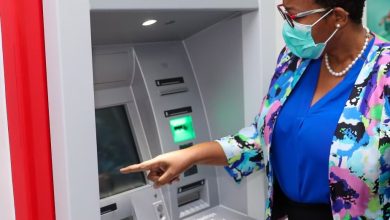How Uganda’s cashless revolution is transforming its economy

Business
No Excerpt
In a land where vibrant markets once thrummed to the sound of coin clinking and cash transactions, Uganda is now dancing to a new digital beat—one that is rapidly reshaping the nation’s economic landscape.
The cashless revolution is not just a trend; it’s a tectonic shift that promises to enhance financial inclusion, boost entrepreneurship, and transform the lives of millions of Ugandans.
Keep Reading
In recent years, Uganda has been at the forefront of accessing digital financial services, with mobile money platforms like MTN Uganda and Airtel Money leading the charge.
The Ugandan government has embraced this trend with open arms, aiming to streamline transactions and reduce the risks associated with cash handling, such as theft and loss.
With about 75% of the adult population now having access to mobile money accounts, the country has witnessed unprecedented growth in the financial sector.
Historically, financial services in Uganda were inaccessible to many, especially in rural areas, where banks were few and far between. The shift toward a cashless economy has dismantled these barriers.
Women, smallholder farmers, and small enterprises—once marginalized in traditional banking—are now participating in the economy like never before.
Mobile money has empowered over 60% of Ugandans to save, borrow, and transact digitally, promoting a culture of savings and investment.
With cashless transactions simplifying payments and access to capital, Uganda is experiencing a surge in entrepreneurship.
Startups and small businesses can operate more efficiently, reducing overhead costs associated with handling cash.
The ease of mobile payments has also led to increased customer base for small traders, enabling them to expand their businesses without the constraints of cash transactions.
The tech landscape is flourishing, with innovative solutions emerging to cater to this growing digital economy.
One of the most significant enhancements brought about by the cashless economy is the added layer of transparency it provides.
As digital transactions leave a traceable footprint, the potential for corruption and financial mismanagement is curbed.
The Ugandan government has been able to track revenue collections better, leading to improved accountability and efficiency in public services.
Yet, this remarkable progress is not without challenges. Cybersecurity concerns loom large, and there is a pressing need for robust regulatory frameworks to protect users and ensure the integrity of financial systems.
Moreover, the digital divide remains a hurdle; those without internet access or digital literacy are at risk of being left behind. Bridging this gap will be crucial for the sustained growth of Uganda’s cashless economy.
As Uganda ventures further into the digital age, the potential for economic transformation is immense.
If the government and private sector can effectively collaborate to address existing challenges, the cashless revolution could well position Uganda as a leader in digital finance within Africa.
Uganda’s shift from cash to code is more than just an economic trend—it is a lifeline of opportunity that connects a diverse population to the financial ecosystem.
As the nation continues to embrace technological advancements, Ugandans can look forward to a more inclusive, transparent, and prosperous future.




